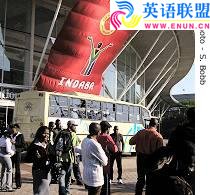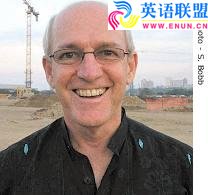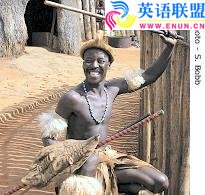Durban
19 June 2007
The head of soccer's world governing body, Sepp Blatter and senior FIFA officials are in South Africa to view construction on 10 stadiums that are to host the 2010 soccer World Cup. The event is still three years away, but preparations are reaching a feverish pitch, especially in South Africa's tourism industry. Correspondent Scott Bobb attended the annual tourism trade fair in Durban in May and reports on the preparations.
|
|
| Zulu dancer at Durban trade fair |
Organizers say Indaba is the third-largest tourism trade fair in the world. It showcases South Africa's $3 billion a year tourism industry, which has become the country's largest foreign-exchange earner.
Tourist arrivals last year GREw by 15 percent. And Durban, South Africa's second largest city with 3.5 million people and one of the busiest ports in Africa, has become and a major destination.

Indaba trade fair
Tourists are drawn to Durban by its mild climate, broad beaches, water attractions and mix of African, Asian and European cultures. The 2010 soccer World Cup is expected to swell their numbers.
The city is building a $200 million stadium, which will seat 70,000 people, to host major world cup matches in 2010.
 |
| Michael Sutcliff |
"The things around the World Cup is what will be celebrated more here, the dance, the drums," he said. "And that sort of experience is going to make it a World Cup that people will walk away and say, 'Wow, it was not just a soccer event. That was an experience. It was a life-long experience.'"
The South African government is investing billions of dollars to build or enlarge 10 stadiums around the country and develop bus and railway networks. New hotels and guest houses are being built to accommodate the estimated 400,000 soccer fans expected for the Cup.
At the , operators like Rudi Rippe of Jumbo Tours acknowledge the World Cup presents opportunities, but also poses challenges.
"It [World Cup] will take away our normal tourism flow," said Rippe. "And except for the people that are directly involved in it, which are only a very limited number of companies, the rest of us will have a tougher time because we cannot get our normal coaches, our normal accommodations, etc."
Joe Motsogi of JMT Tours says operators must think beyond the 32 days of soccer matches or face ruin.
He launched his company 10 years ago and was among the first black South Africans to enter what has been an industry dominated by whites. Motsogi says black tourism operators face many obstacles.
"There is lack of capital. But we need to be very careful. We cannot pump in capital when there is no skill," said Motsogi. "That capital is going to dissipate. Develop skills first, and then provide capital."
Operators of game lodges, luxury railroad tours, and camping, hiking and golfing expeditions are also seeking to attract some of the two billion tourism dollars to be spent during the Cup.
And for the first time the world soccer governing body, FIFA, is allowing game lodges to register on its accommodations list.
There are reports that alternate countries are being considered for the World Cup because of South Africa's high crime rate and lack of hotels and transportation.
Sutcliff acknowledges these are problems, but says they are being addressed.
"We certainly will be ready. It will be the GREatest World Cup ever. I have got no doubt in my mind," he said.
South African tour operators aGREe. They promise that the 2010 World Cup will be held in South Africa and it will be a uniquely African experience.



